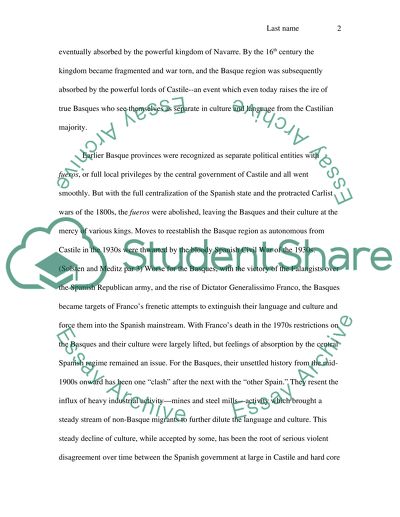Cite this document
(“The Basques Research Paper Example | Topics and Well Written Essays - 1500 words”, n.d.)
Retrieved from https://studentshare.org/family-consumer-science/1414034-the-basques
Retrieved from https://studentshare.org/family-consumer-science/1414034-the-basques
(The Basques Research Paper Example | Topics and Well Written Essays - 1500 Words)
https://studentshare.org/family-consumer-science/1414034-the-basques.
https://studentshare.org/family-consumer-science/1414034-the-basques.
“The Basques Research Paper Example | Topics and Well Written Essays - 1500 Words”, n.d. https://studentshare.org/family-consumer-science/1414034-the-basques.


